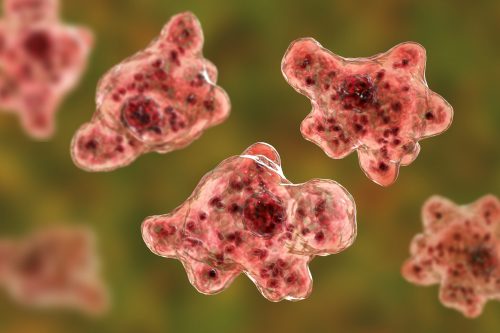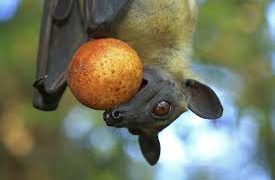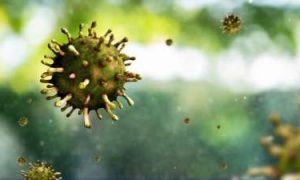
What is Naegleria fowleri?
Naegleria fowleri is a single-celled, free-living amoeba found in warm freshwater environments, such as lakes, rivers, and hot springs. It is commonly referred to as the “brain-eating amoeba” because it can cause a rare and usually fatal brain infection known as primary amebic meningoencephalitis (PAM).
Characteristics and Habitat
- Structure: Naegleria fowleri has three stages in its life cycle: cyst, trophozoite (amoeboid), and flagellate. The trophozoite stage is the infective form that causes disease in humans.
- Habitat: This amoeba is commonly found in warm freshwater environments such as lakes, hot springs, and poorly maintained swimming pools. It thrives in temperatures up to 46°C (115°F) .
Risks of Naegleria fowleri Infection
- Environmental Presence:
- Warm freshwater bodies, particularly those in southern-tier states during summer months.
- Poorly maintained swimming pools or inadequately chlorinated water.
- Geothermal water sources, such as hot springs.
- Behavioral Factors:
- Swimming or diving in warm freshwater bodies.
- Allowing freshwater to enter the nose, as the amoeba travels through the nasal passages to the brain.
- Geographic Considerations:
- Most cases occur in the southern United States, but infections have been reported globally in warm climates.
Symptoms of PAM
Symptoms typically appear within 1 to 9 days of exposure and may include:
- Severe headache
- Fever
- Nausea and vomiting
- Stiff neck
- Confusion and hallucinations
- Seizures
- Coma
Prevention Measures
- Avoid Freshwater Activities:
- Refrain from swimming or diving in warm freshwater bodies during high-risk months.
- If you do swim, try to keep your head above water and avoid stirring up the sediment.
- Use Proper Precautions:
- Use nose clips or hold your nose shut if swimming in freshwater bodies.
- Avoid putting your head underwater in hot springs and other warm water sources.
- Maintain Pools and Hot Tubs:
- Ensure pools and hot tubs are adequately chlorinated and well-maintained.
- Test water regularly to ensure proper chlorine levels and pH balance.
- Safe Water Practices:
- Use distilled, sterile, or boiled water for nasal rinsing or sinus irrigation.
- Avoid using tap water directly for nasal cleansing without proper treatment.
Treatment and Outcomes
- Early diagnosis and treatment are critical. However, Naegleria fowleri infections are challenging to treat and often fatal.
- Treatment may include a combination of antifungal, antibacterial, and antiviral drugs.
- The investigational drug miltefosine has shown promise in some cases.
Summary
While Naegleria fowleri infections are rare, they are severe and often fatal. Awareness of the risks and following preventive measures can significantly reduce the likelihood of infection. Avoiding warm freshwater activities, using proper precautions when swimming, and maintaining water hygiene in pools and hot tubs are key strategies to prevent exposure to this dangerous amoeba.












